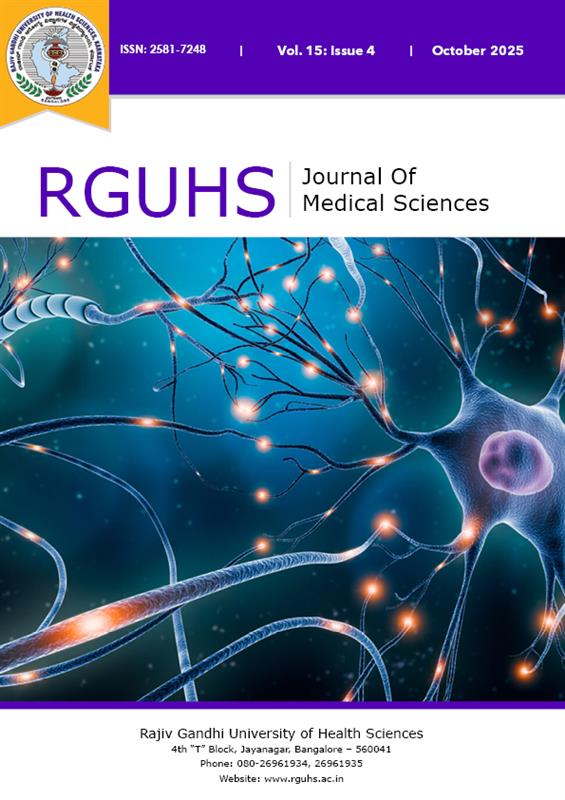
RGUHS Nat. J. Pub. Heal. Sci Vol: 15 Issue: 4 eISSN: pISSN
Dear Authors,
We invite you to watch this comprehensive video guide on the process of submitting your article online. This video will provide you with step-by-step instructions to ensure a smooth and successful submission.
Thank you for your attention and cooperation.
Nishanth BS*, Shashikala P**, Mahesh S*
*Postgraduate student, ** Professor and Head, Department of Pathology, SS Institute of Medical Sciences, Davangere
Dr Shashikala P
Professor and Head: Department of Pathology
SSIMSRC, Davangere.
Email: drpshashikala@gmail.com

Abstract
Background: Adverse donor reactions of variable severity occur during blood donation. This may have a negative impact on donor retention and donor return. The present study aims to analyse the donor reactions in a group of voluntary blood donors who belong to medical fraternity. The knowledge about various donor reactions helps us to take necessary preventive measures.
Materials and methods: This is a cross sectional study on donor reactions conducted during a voluntary blood donation camp by medical students and doctors. All the donors were observed for adverse reactions during and for a period of 30 minutes after donation and the data regarding adverse reactions were recorded and analysed.
Results: A total of 37 medical students donated blood. 24(64.86%) were males and 13(35.14%) were females. Nine (24.32%) donors developed adverse donor reactions out of which 7 (77.78%) were first time donors.
Conclusion: The prevalence of adverse donor reactions was high even though all the donors were medical students and doctors with prior knowledge about blood donation. Counselling of blood donors prior to donation about the adverse reactions along with incorporation of preventive measures can minimise the donor reactions.
Keywords
Downloads
-
1FullTextPDF
Article
None
Supporting File
References
None